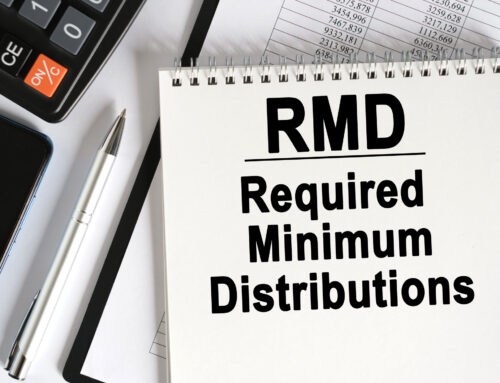
The Federal Reserve may seem distant or complicated, but its decisions ripple through everything from interest rates to inflation, and that may affect your retirement directly. Let’s explore why the Fed works, why its independence matters, and what that means for your financial stability in retirement.
What exactly is the Federal Reserve supposed to do?
The Federal Reserve has two main goals: to keep inflation in check and to support a healthy job market. To do that, it adjusts interest rates up or down based on how the economy is doing. For retirees, these shifts can impact savings account yields, investment returns, and even the cost of borrowing.¹
Why is this balancing act so important for retirees?
Because your retirement income is likely fixed, or at least more sensitive to market swings. The Fed’s job is to smooth out the economy so that inflation doesn’t erode your purchasing power, and so your investments aren’t thrown into chaos by extreme booms or busts. A steady, balanced economy helps protect the value of your retirement savings.¹ ²
What makes the Federal Reserve effective at its job?
Believe it or not, one of the Fed’s greatest strengths is its independence. Unlike Congress or the White House, the Fed doesn’t answer to voters. That might sound undemocratic—but it’s actually what gives the Fed the freedom to make difficult decisions that are good for the long term, not just politically popular in the moment.¹ ²
What happens when a central bank becomes politicized?
History shows the consequences can be devastating. In the 1920s, Germany’s Weimar Republic printed money to meet political demands, causing hyperinflation so severe that savings became worthless practically overnight.³
More recently, Zimbabwe’s central bank was pressured by its government to fund public spending by printing money, leading to one of the worst hyperinflation episodes in history. In both cases, people lost confidence in their currency, and retirees paid a high price.⁴
Can the Fed still affect my retirement even if I’m not working anymore?
Absolutely. The Fed influences interest rates, which in turn affect bond yields, CD rates, and mortgage costs. It also plays a major role in managing inflation, which can quietly chip away at your fixed income over time. So even if you’re retired, the Fed’s decisions still shape your financial landscape.¹ ²
What can I do to protect myself, no matter what the Fed does?
While you can’t control the Fed, you can control your response to it. Working with a financial advisor gives you access to strategies that can help protect your income from inflation, help smooth out investment volatility, and help maintain stability, regardless of what’s happening in the broader economy.¹ ²
The Takeaway
The Federal Reserve plays a key role in keeping our economy (and your retirement) on steady footing. But the best way to stay protected isn’t watching the Fed’s every move. It’s having a personalized plan.
Let’s talk about building a retirement strategy that works in any economic climate so you can spend more time enjoying retirement, and less time worrying about what the Fed does next.
[1] https://www.investopedia.com/terms/f/federalreservebank.asp
[2] https://www.stlouisfed.org/in-plain-english/history-and-purpose-of-the-fed
[3] https://www.britannica.com/event/hyperinflation-in-the-Weimar-Republic
[4] https://www.cato.org/sites/cato.org/files/serials/files/cato-journal/2009/5/cj29n2-8.pdf
Epstein & White is a tradename. All services provided by Epstein & White investment professionals are provided in their individual capacities as investment adviser representatives of Mercer Global Advisors Inc. (“Mercer Advisors”), an SEC registered investment adviser principally located in Denver, Colorado, with various branch offices throughout the United States doing business under different tradenames, including Epstein &White. Information contained herein is for informational and illustrative purposes only and general in nature. It should not be considered investment advice or a recommendation to buy or sell any type of securities or insurance products and no investment decision should be made based solely on any information provided herein. Investing involves risk, including the possible loss of principal. Different types of investments involve varying degrees of risk, investments mentioned in this document may not be suitable for all investors. We provide this information with the understanding that we are not engaged in rendering legal, accounting, or tax services.
SWG 4706975-072




